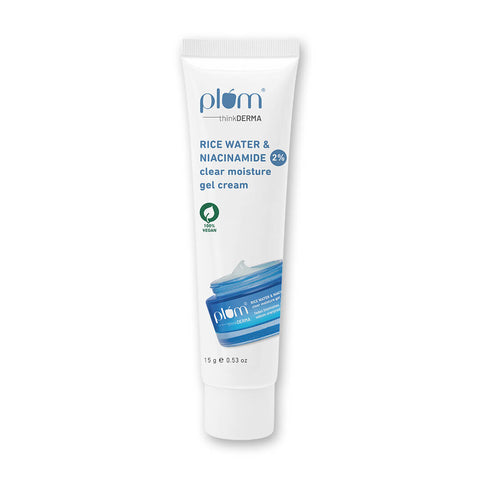frequently asked questions
What is the purpose of using sunscreen?
You need sunscreen cream and SPF to protect the skin from harmful ultraviolet (UV) rays that can cause sunburn, skin damage, aging, and increased risk of skin cancer. For body, you also need sunscreen lotion to prevent sun damage.
How often should I reapply sunscreen?
It is recommended to reapply sunscreen every 2 hours or immediately after swimming or sweating.
What SPF should I use for everyday use and for extended sun exposure?
For everyday use, an SPF of 30 is recommended, while for extended sun exposure, an SPF of 50 or higher is recommended.
Can I use sunscreen daily?
Yes, it is safe to use sunscreen daily, especially if you are spending time outdoors or in bright sunlight. Look for sunscreens for everyday use that are lightweight and leave no white cast.
Can I use sunscreen if I have sensitive skin?
Yes, you can use sunscreen even if you have sensitive skin, but it is recommended to choose a product specifically formulated for sensitive skin, and to perform a patch test to check for any adverse reactions.
Can I wear makeup with sunscreen?
Yes, you can wear makeup products on top of the sunscreen. Opt for sunscreen without a white cast for best results.
Which is better SPF 30 or SPF 50?
Both SPF 30 and SPF 50 provide adequate protection from harmful UV rays, but SPF 50 offers slightly more protection. It is recommended to choose a sunscreen SPF 50 or higher for extended sun exposure and to reapplication every 2 hours. However, if you are looking for sunscreen for oily skin or are mostly staying indoors, you can also use an SPF 35.
What sunscreen should I use for oily skin?
To buy sunscreens for oily skin, look for a product that is non-greasy, lightweight, and leaves no white cast. You can try the Plum Cica & Hyaluronic Acid SPF 50 PA+++ Sunscreen. It is enriched with the goodness of cica and hyaluronic acid. It contains new-gen filters that protect your skin without being heavy on your skin.
Should I use sunscreen if my face is oily?
Yes, you should never skip sunscreen, whatever your skin type. If you are looking for specific skin concerns, like sunscreen for oily skin or sunscreen for sensitive skin, read the labels. Ensure it has skin-loving ingredients like cica, hyaluronic acid, niacinamide, green tea, etc., that soothe the skin and protect it from sun damage.
All you need to know about sunscreen
Sunscreen is a skincare product designed to protect the skin from the harmful effects of the sun's ultraviolet (UV) rays. UV rays from the sun can cause damage to the skin, including sunburns, premature ageing, and an increased risk of skin cancer. By using sunscreen, you can reduce the risk of these harmful effects and maintain the health of your skin.
Types of sunscreens
There are two main types: chemical and physical.
Chemical sunscreens: These work by turning the UV rays into heat and releasing them from the skin and typically have a lighter, more easily absorbed texture and are less visible on the skin.
Physical sunscreens: These work by reflecting UV rays away from the skin. They contain active ingredients such as zinc oxide or titanium dioxide, which act as a physical barrier against the sun's UV rays.
When and how to apply sunscreen
It is recommended to apply sunscreen at least 15 minutes before sun exposure and to reapply every two hours or after swimming or sweating. Sun protection should be applied liberally to all exposed skin and should be used in conjunction with other sun protection measures, such as seeking shade, wearing protective clothing, and wearing a hat.
When applying sunscreen, it is important to use enough product to cover all exposed skin. A general rule of thumb is to use about one ounce (or a shot glass full) for every application. Be sure to spread the sun cream evenly, paying extra attention to areas that are more likely to be exposed to the sun, such as the face, neck, arms, and legs.
Do we need to apply sunscreen every day?
Yes, it is recommended to apply sunscreen every day, regardless of weather conditions or time spent outdoors. The sun's UV rays can penetrate clouds and windows and can cause damage to skin even on cloudy or overcast days. Daily use with a minimum SPF of 30 can help reduce the risk of skin damage, premature ageing, and skin cancer. It is important to reapply every 2 hours, or immediately after swimming or sweating, to maintain its effectiveness.
Reasons to never skip sunscreen
-
Sunburns: Sunburns can cause painful, red, and peeling skin. In severe cases, sunburn can even lead to blistering and skin infections. By using sunscreen, you can reduce the risk of sunburn and enjoy comfortable, pain-free skin.
-
Premature ageing: Sun exposure can cause premature ageing, including fine lines, wrinkles, and age spots. By using sunscreen, you can protect your skin from the damaging effects of the sun's UV rays and maintain a youthful appearance.
-
Hyperpigmentation: Sun exposure can cause hyperpigmentation, dark spots, and uneven skin tone. With accurate usage, you can maintain a uniform skin tone and avoid dark spots caused by sun exposure.
-
Skin irritation: Sun exposure can cause skin irritation, especially in people with sensitive skin. With careful usage, you can protect your skin from sun-induced irritation and maintain comfortable, healthy skin.
-
Skin cancer: The sun's UV rays are a major cause of skin cancer, including melanoma. By using sun protection, you can reduce your risk of skin cancer and protect your health.
Tips for selecting the right sunscreen
When selecting, it is important to consider your skin type and any skin concerns you may have. Here are a few tips to help you select the right sunscreen for you:
-
SPF and PA ratings: Look for products with a high SPF (sun protection factor) and PA (protection grade of UVA) rating. The higher the SPF and PA rating, the higher the level of protection against the sun's UV rays.
-
Skin type: Consider your skin type when selecting a sunscreen. Look for moisturizing sunscreen for dry skin and lightweight, oil-free sunscreen for oily skin.
-
Formula: Sunscreens come in a variety of formulas, including creams, serums, lotions, sprays, and sticks. Consider your personal preference and the area of your skin you need to protect when selecting a formula.
-
Water resistance: If you will be spending time in the water, look for a water-resistant sunscreen to ensure maximum protection.
-
Ingredients: Be mindful of the ingredients and choose one that is suitable for your skin type and any skin concerns you may have. For example, if you have sensitive skin, look for sunscreen that is free from fragrances, parabens, and other potential irritants.
What is SPF and PA
SPF, or sun protection factor, is a rating system that measures the level of protection a sunscreen provides against UVB rays. UVB rays are the main cause of sunburn and are also responsible for much of the skin damage associated with sun exposure. The higher the SPF, the higher the level of protection against UVB rays.
PA, or protection grade of UVA, is a rating system that measures the level of protection provided against UVA rays. UVA rays are responsible for premature ageing and contribute to the development of skin cancer. A PA rating of PA++ or higher is recommended for maximum protection against UVA rays.
In conclusion, understanding the difference between SPF and PA is crucial for selecting the right sunscreen. Both are essential for protecting your skin from the harmful effects of the sun's UV rays. By choosing a sunscreen with a high SPF to guard against UVB rays and a high PA rating to protect against UVA rays, you can enjoy beautiful, healthy skin for years to come. Whether you're spending time outdoors or just running errands, always protect your skin by applying a high-quality sunscreen.
Best Plum sunscreens according to skin type & benefits
| Sunscreen | Skin Type | Benefits |
|---|---|---|
| Hyaluronic Acid Sunscreen | All Skin Types | Water-light, Non-Sticky, New Gen Filters |
| Dewy Sunscreen | Dry, Sensitive Skin | Hydrates Skin, New-Gen Filters, Non-Sticky |
| Skin Brightening Sunscreen | All Skin Types | Reduces Blemishes & Brightens Skin |
| Green Tea Sunscreen for Oily Skin | Oily, Acne-prone, Combination Skin | Ultra-Light Gel Texture, No White Cast, Fights Pimples |
| Sunscreen for Combination Skin | Normal Skin | Soothes and Calms Skin |
| Anti Aging Sunscreen | Mature Skin | Fights Sun Damage and Signs of Ageing |




























